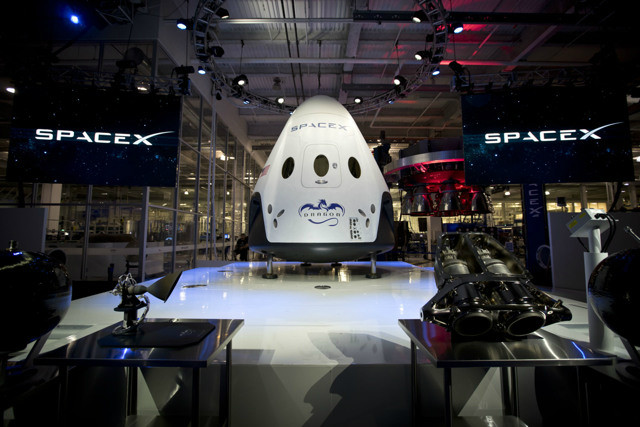Dragon V2: Elon Musk Unveils SpaceX's Manned Space Taxi

SpaceX founder Elon Musk has unveiled a spacecraft to transport up to seven astronauts to the International Space Station (ISS).
The Dragon V2 is the latest craft to push forward the private-sector space race and follows on from the Dragon ship that has previously been used to ferry cargo to the ISS.
The new ship features a cone-headed design, a navigation system that allows it to land "with the accuracy of a helicopter", and rapid reloading and reusability technology.
"You can just reload, propel it and fly again," Musk said at the unveiling event at the SpaceX headquarters in Los Angeles.
The Dragon V2 is expected to make its first test flight in early 2015, though this is dependant on funding from the US government which has yet to be confirmed.
Revolutionising
"This is extremely important for revolutionising access to space because as long as we continue to throw away rockets and space crafts, we will never truly have access to space. It will always be incredibly expensive."
Nasa currently relies on Russia to take its astronauts into space after retiring its shuttle fleet in 2011. This currently costs the space agency around $71 million (£42m) per astronaut and has recently been put under threat by escalating tensions between the US and Russia.
Russian actions in Ukraine resulted in the US imposing trade sanctions on its ISS partner. In retaliation Russia announced that it would cease selling the RD-180 rocket engine and would no longer transport US astronauts to the station after 2020.
Nasa will hope that private companies like SpaceX will be able to fill this void left, with the space agency setting a date of 2017 for this to be possible.
John Logsdon, a professor of political science and international affairs at George Washington University, believes that the progress of private companies is slower than anticipated and the news of the Dragon V2 will be welcomed by the US government and Nasa.
"It's essential to have our own capability to transport people to space," he said. "This is an important step in that direction."
© Copyright IBTimes 2025. All rights reserved.






















